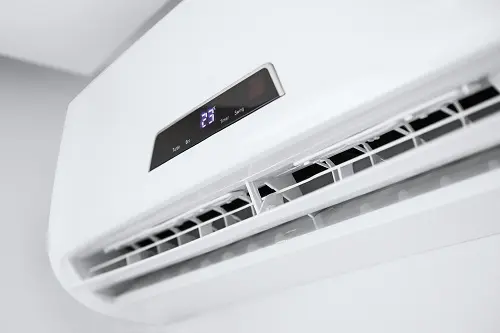Choosing the right size air conditioner is one of the most important decisions you’ll make for your home comfort. Get it wrong, and you could be stuck with a system that chews through electricity, leaves your rooms feeling either too cold or too warm, and costs more than it should.
A common misconception is that “bigger is better” when it comes to air conditioning. In reality, an oversized unit can be just as problematic as one that’s too small. The key is finding that sweet spot where your system is efficient, effective, and suited to your home.
So how do you know what size air conditioner you need? Let’s break it down.
What influences the size of air conditioner you need?
Several factors come into play when working out the right size unit for your home. It’s not just about square metres – the way your home is built and where it’s located matters too.
Here are the main things to consider:
-
Room size – Larger rooms need more cooling power, while smaller spaces can get by with less.
-
Insulation – Well-insulated homes retain cool air better, meaning you may not need as powerful a system.
-
Location & climate – A home in Brisbane faces very different cooling demands to one in Hobart.
-
Orientation – North- and west-facing rooms often cop more sun, which increases cooling needs.
-
Ceiling height – Higher ceilings mean more air to cool, which usually requires more capacity.
Expert tip: “Don’t rely on room size alone – it’s just one piece of the puzzle,” says an experienced installer. “Your home’s insulation and orientation can make a huge difference.”
How to calculate what size air conditioner you need
You’ll often see rough estimates online, such as recommending a certain kilowatt (kW) capacity per square metre. While these ballpark figures can help, they’re no substitute for a proper calculation.
The Australian Institute of Refrigeration, Air Conditioning and Heating (AIRAH) provides detailed calculators that take into account all the important variables – not just floor area. This is the best way to get a reliable answer for your home.
Why not just guess? Because undersizing or oversizing leads to higher energy bills, inefficient performance, and less comfort. Spending a little time upfront with a proper calculator – or getting professional advice – saves a lot of headaches later.
Here’s Why Roof Insulation Matters
Before you even think about buying a new air conditioner, check your insulation.
-
A well-insulated roof dramatically reduces heat transfer, meaning your home stays cooler in summer and warmer in winter.
-
Without insulation, your air conditioner has to work harder, costing you more in electricity.
-
Upgrading insulation is often the most cost-effective first step, and it may allow you to choose a smaller, more efficient unit.
Think of insulation as the “foundation” of your home’s comfort – get this right, and your air conditioner will have an easier job.
Why you shouldn’t go too big or too small
-
It’s tempting to just play it safe and choose a bigger system, but this can backfire. Likewise, going too small will leave you frustrated.
Risks of an oversized unit:
-
Short cycling (turning on and off too quickly), which wastes energy and wears the system out faster.
-
Poor humidity control, leaving the air feeling sticky rather than comfortable.
-
Higher upfront and running costs than necessary.
Risks of an undersized unit:
-
Struggles to reach the desired temperature.
-
Runs continuously, leading to higher power bills.
-
Puts strain on the system, shortening its lifespan.
Finding the sweet spot
The best approach is to aim for a system that matches your home’s needs as closely as possible. Not too big, not too small – just right.
-
Practical tips to get it right
Here are a few extra things to keep in mind when planning:
-
Check room orientation – Rooms facing north or west often need a little more cooling power.
-
Look at shading – Trees, awnings, and blinds can reduce heat load and help efficiency.
-
Consider window size – Large glass areas, especially single-glazed, can significantly increase cooling needs.
-
Think about year-round use – Reverse-cycle air conditioners are a great choice in Australia, as they provide both cooling and efficient heating.
-
Balance cost and efficiency – A correctly sized unit is cheaper to run and lasts longer.
A brief summary
When it comes to air conditioners, bigger isn’t always better – and neither is smaller. The right size depends on your home’s layout, insulation, and climate, and choosing carefully can save you money while keeping you comfortable.
If you’re not sure where to start, use a detailed calculator like AIRAH’s, or better yet, talk to an expert who can assess your home properly.
Contact Our Air Conditioning Experts
For help and advice on choosing the right air conditioning system for your home, contact the Oceanside Services team today on 07 5520 7100 or online. Our expert air conditioning technicians have all the tools and know-how to help you make a smart choice.



 5 Star Service
5 Star Service 




